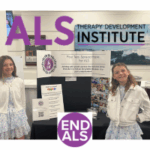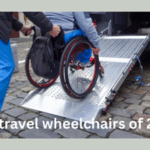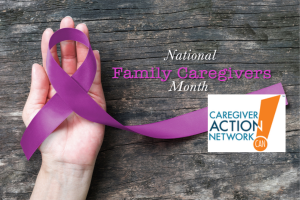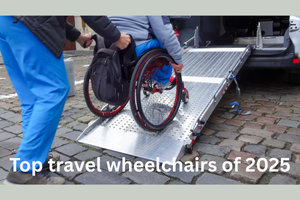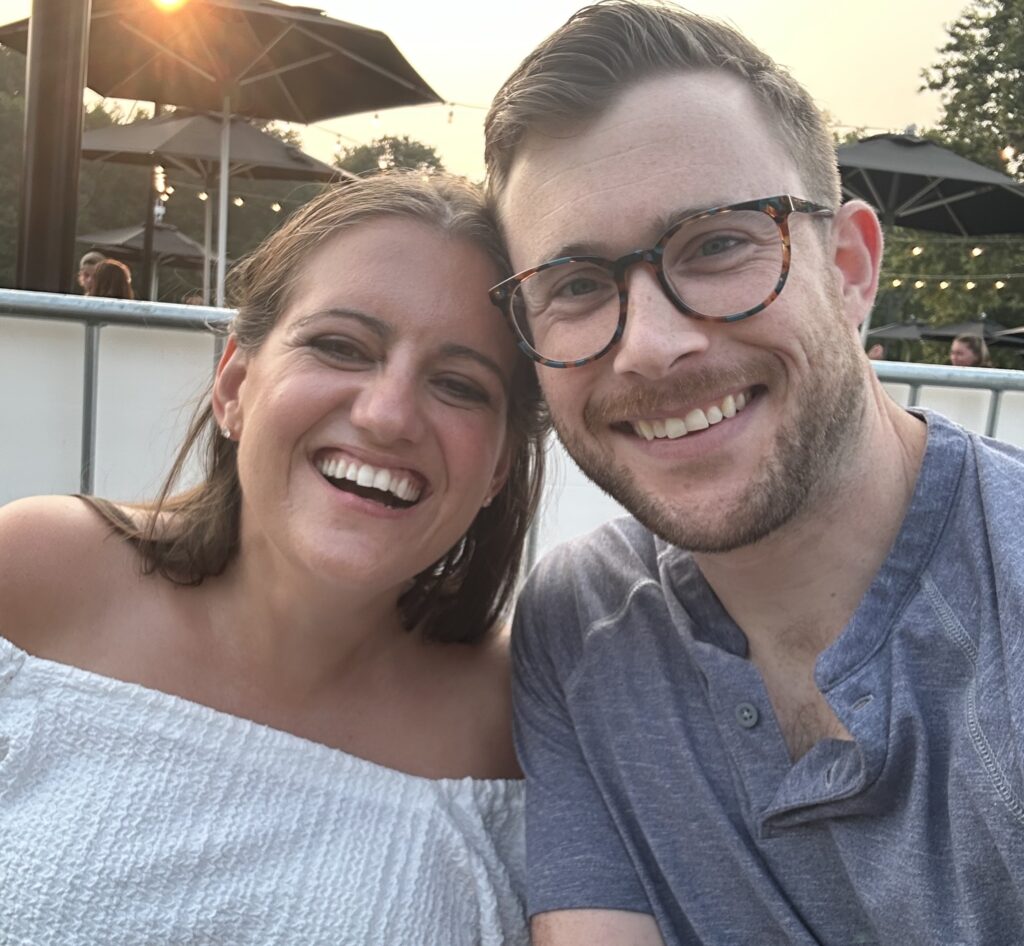
This month, we are excited to share a profile of an ALS caregiver from Connecticut, Joe Gasser, whose wife, Alex, is living with ALS. Joe and Alex were married in 2020 and, like 90% of people with ALS, were completely shocked by Alex’s diagnosis. In the years since, the couple has adjusted their approach to life and to caregiving. We were lucky enough to sit down with Joe to ask for his thoughts and advice about being a spouse and ALS caregiver.
Can you tell me a bit about yourself, and about your wife, Alex?
I am a lifelong Connecticut resident; I grew up here and went to college and law school here. That’s actually where I met my wife, Alex, who also grew up in a small Connecticut town, on a former chestnut tree farm that her grandfather ran. We met at law school, even before the first day of class, at a networking event.
We were both dating other people at the time, but those relationships faded out over the next year, and in our second year of school we started dating. That was ten years ago. Alex was diagnosed with ALS in 2020, after we’d been engaged for several months, and just a few months before our wedding.
Wow, that must have been shocking and hard. Can you tell us about her diagnosis?
Beginning in the summer of 2019, Alex started to notice some slurring of her speech. It really wasn’t noticeable to many people around her, but she swore it was happening. She also noticed that she was having to make a greater effort to speak clearly. Her primary care doctor referred to her a neurologist, who told her there was no cause for concern. She had Alex get an MRI, which showed nothing out of the ordinary.
So, we didn’t think much of it, until right around the holidays when we saw some friends, including a nurse friend, who we hadn’t seen in a few months. She noticed a huge contrast in Alex’s voice, and really urged her to get a second opinion. We saw a neurologist affiliated with Yale, and in that appointment, within minutes, he knew something was very wrong. He didn’t diagnose Alex on the spot, because part of the horrible experience of ALS is you don’t get a diagnosis for several months. They have to rule everything else out before they can definitively say it’s ALS.
But this doctor thought immediately that it was a progressive neuromuscular condition. I’ll never forget how that morning felt, being in his office, knowing that life was going to change in a big way. It took until late summer before we had an official diagnosis, and until then, we were in limbo. There was this hope that maybe it was something else, and not ALS … but in our case, it was. We got married shortly after her diagnosis, on September 26, 2020.
A wedding right after an ALS diagnosis. That must have been challenging.
It was hard, having a wedding right after receiving that news. There was such uncertainty about what a life with ALS would look like. Would her disease progress very rapidly, and we’d only have 2, 3, or 4 years together? Or would this be something that goes for ten years or more? There’s this real sense of disorientation that characterized the lead-up to our wedding.
Although, for Alex, getting the diagnosis was somehow a little refreshing; it was helpful, at least, to know that there was a name for it and that there were concrete steps we could take moving forward (including clinical trials; a diagnosis unlocks things like that and Alex is now on her third clinical trial). So, while it was horrible and disorienting, at least we knew we were on a path.
Honestly, never in your wildest dreams would you believe that, at age 28, you’re going to be dealing with a terminal condition that affects every aspect of your life — and, eventually, your relationship. On the other hand, there is a certain sense of appreciation of the moment, and the time that you do have. ALS makes you really treasure every moment you have with your spouse, so it made our wedding a lot more meaningful and poignant.
How is Alex doing today?
She is in a powered chair most of the time. She has very little independent mobility. She has lost a lot of her ability to speak, so if you don’t know her, it can be very difficult to understand what she’s saying. She uses assistive technology to help out, like speech to text. She has a bit of motor control with her hands, but she recently got set up with eye gaze technology.
What is Alex’s caregiving set-up like?
I’m not the sole caregiver anymore. I was, until last spring, but I also work full-time. I was able to make it work during Covid, when a lot of life was lived at home — I could pretty easily balance things, and she also had fewer needs in the beginning. But with ALS being progressive, the needs increase over time, so early last year, we realized, we really need help, that I can’t do this on my own. Even with family help, it wasn’t enough without a professional caregiver.
We ended up hiring an ALS caregiver last spring, and it was really fortuitous. Carmen isn’t a nurse, but someone who helps with activities of daily living. She lives in the town next to us, and had previously been an ALS caregiver for someone who had just passed a week before we found her after posting a message in our community’s Facebook group.
It was incredible that she was there, and available, and that she wanted to continue doing this work after all she’d been through, and was willing to do it again for us. Our ALS caregiver has been with us for the past year and a half, for 30 to 40 hours per week, and she has been an absolute lifesaver. I can go into the office, go to court, and have some time to myself.
I’m part of a group of ALS caregiver spouses, and through that group I’ve heard horror stories about people going through 2, 3, 4 caregivers per year, because of fit, or because the caregiver realizes they are not suited for this kind of work. So, on top of doing caregiving, these spouses were acting as a temp agency, and it just adds another level of burden.
What advice would you have for a family recently diagnosed or thinking about hiring a professional ALS caregiver to help with their loved one with ALS?
It’s tough to give advice, because you can receive all the advice in the world in the very beginning, and you’re just so overwhelmed that you file it way. But here is what has worked for me.
Find a community. Find a local ALS group, reddit page, Facebook group — of people going through the same thing you are. Not only as the person with ALS, but as the caregiver. There are challenges, emotions, and situations that arise that are different for the caregiver than the person with ALS. One of the biggest quality of life upgrades for me is this group of ALS caregivers on WhatsApp. It’s just been amazing. So first, find a community.
Don’t be afraid to ask for help. A lot of people, especially men, do not want to be in a position of weakness or vulnerability, whether that’s help around the house, emotional support, anything else. But you cannot do this alone. You have to be willing to reach out to people in your community — family, friends, professionals — and say, ‘It would really help me if someone could help with this task, 2-3 days a week, or make dinner every so often.’ Everyone wants to help, and doing this is a burden off of yourself that will leave you healthier and help your spouse be in a better position as well.
Maintain your outlets. You have to maintain the things that give you joy and that are outlets for you, whether it’s sports and working out, or music, or other hobbies. Because it’s very easy for your caregiving responsibilities to become your whole life, especially if you don’t have a caregiver. Even if it’s setting aside 30 mins a day to read a book, or to do something else that’s not caregiving, that really helps to ground you. And it helps you persevere when it feels like the lion’s share of your life is not going the way you thought it would and you’re feeling underwater.
What are you and Alex looking forward to?
After Alex was diagnosed, we travelled a lot. From our honeymoon to the Dominican Republic, to a trip to Denmark last year … and we’re planning another trip for 2025, either to the Southwest or possibly Europe if we can make that work. We are lucky that we can still do this, and I can pretty much manage care for Alex for short periods of time like for a trip, though it’s always helpful to have family or friends to help. So, we are really looking forward to that in the coming year.
About Her ALS Story
Her ALS Story was formed in April 2021 by Leah Stavenhagen who was diagnosed with ALS at the age of 26. She founded the organization with the hope of creating a network for young female pALS to lean into. She was also motivated by her belief that as young women who are constantly faced with the harsh realities of ALS, their voices are especially powerful in revolutionizing treatment options and finding a cure.
About SimpliHere
The mission of SimpliHere is to ensure efficient care and peace of mind for caregivers and their patients with neurological conditions that impact communication and mobility. Joanna Rosenberg founded SimpliHere to address communication gaps between caregivers and patients. Her personal experience when her mother lived with ALS exposed the challenges of communicating and understanding basic needs, as well as managing daily tasks. Download SimpliHere today!




